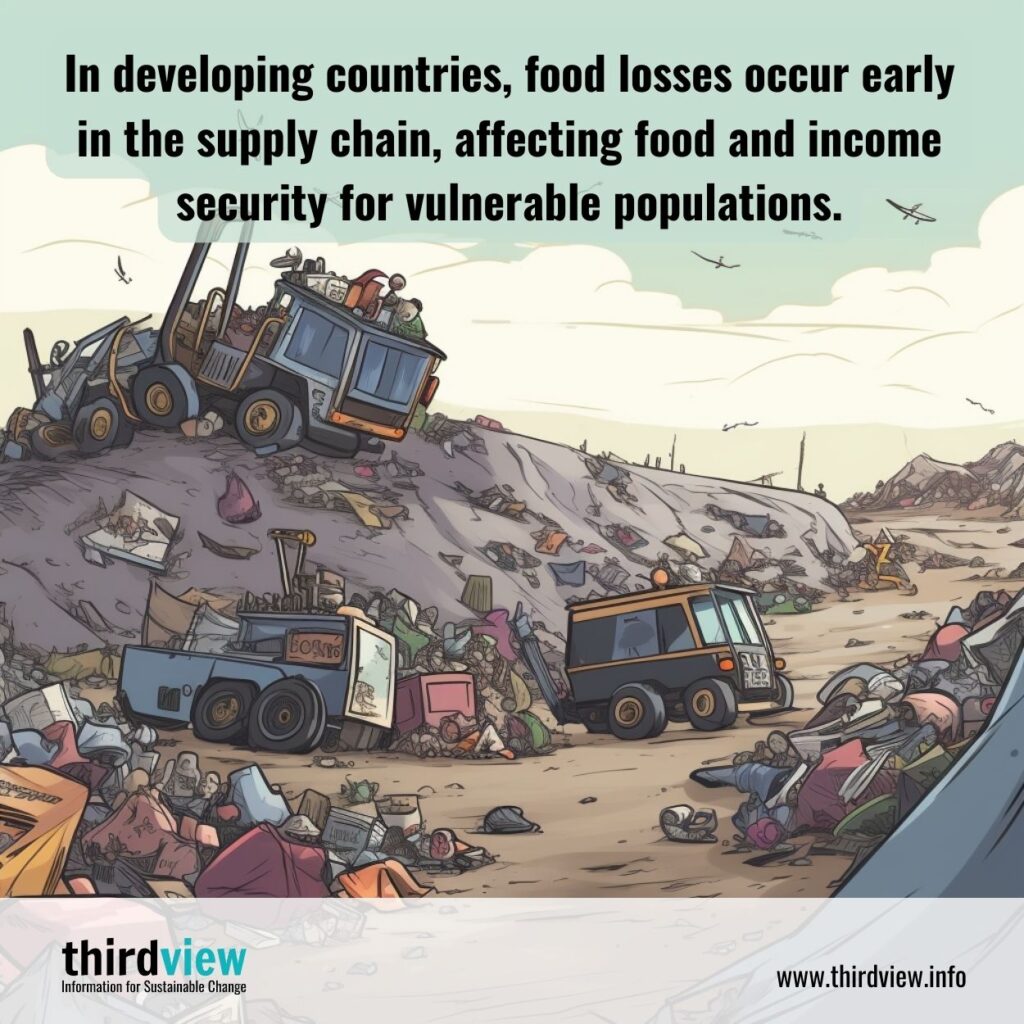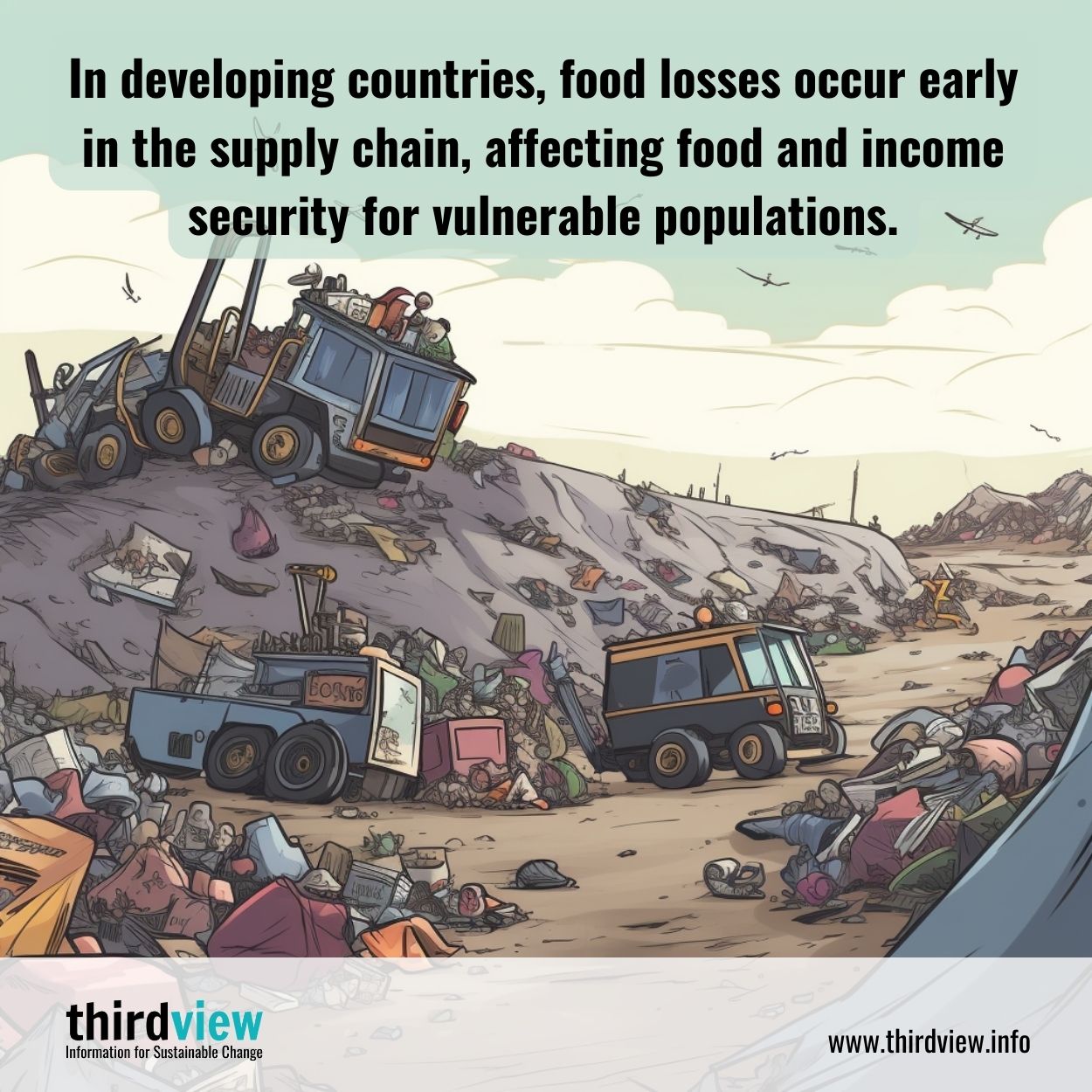Wasted food is not just an ethical issue, but an economic and environmental one too. The food that gets wasted along the production and supply chain has a significant impact on our planet and has economic repercussions. The amount of food that is lost is staggering, particularly in developing countries where the lack of infrastructure drives up the percentage of food loss significantly. This blog explores the impact of food losses on the environment, the economy and what we can do to reduce food waste at every step of the supply chain.
The environmental impact of food losses is particularly significant. Firstly, when food goes uneaten, it ends up in landfills, and when it decomposes, it releases greenhouse gas emissions – primarily methane, which is 25 times more potent than carbon dioxide. According to the Food and Agriculture Organization (FAO), food waste constitutes 8% of global greenhouse gas emissions. Secondly, there is a waste of resources, including water, energy generating unnecessary carbon emissions in the production and transport of food, and the packaging materials used.
The economic impact of food loss is also significant. Losses incurred in production and processing translate to lower incomes for farmers and businesses; wasted food equates to wasted money. Additionally, the food that is not consumed reduces consumer spending across the economy.
Food loss has a serious humanitarian impact. In developed countries, food losses typically occur at the retail and consumer levels. In contrast, in developing countries, they occur earlier in the food supply chain – including during harvesting, storage, and transportation. This food loss has significant implications for the food and income security of people who are already struggling with hunger and poverty.
Reducing food waste across the supply chain is critical to reducing the impact it has on the environment, economy, and society. Some of the ways to achieve this include creating more efficient agricultural and food systems, changing to more sustainable food production methods; building storage and transportation infrastructure to minimize food loss, using technology to improve food quality and safety; and consumers adopting sustainable consumption patterns, planning meals in advance, and storing food correctly.
Reducing food loss is critical to promoting sustainable production and consumption patterns. We need to adopt a holistic approach to reduce food waste across the supply chain, including better storage, transportation, and distribution; reducing unnecessary middlemen; educating producers, distributors and consumers on the issue and tackling overproduction. Every step taken towards reducing food waste can make a significant difference in attaining a more sustainable, just, and healthy world.


